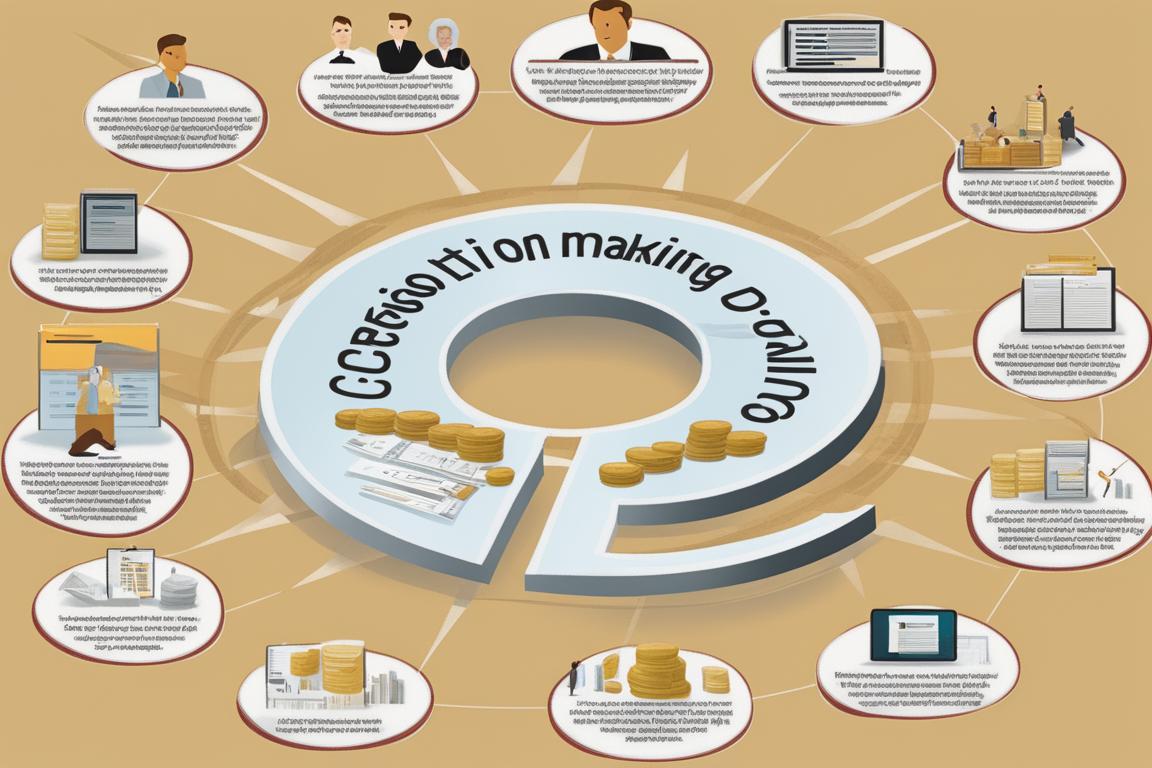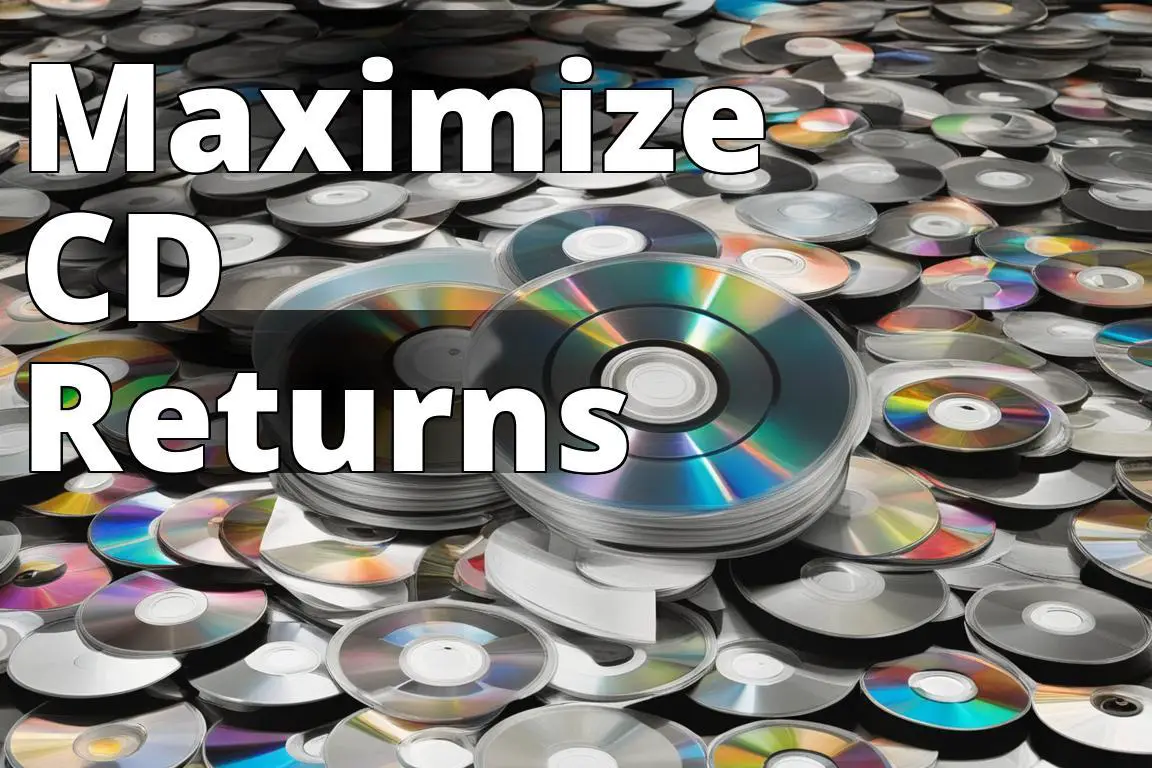Gone are the days when investing in a Certificate of Deposit (CD) was just a simple set-it-and-forget-it affair. In today’s volatile market, understanding what happens when a CD matures is crucial for any investor looking to make informed decisions.
From personal experience, I’ve found that the period leading up to and just after a CD’s maturity can be a time of significant opportunity, but only if you’re well-prepared and understand the nuances involved.
Learn about Cashing Out a CD at Maturity
- When a CD matures, you can choose to renew it, cash out, or do nothing.
- Cashing out a CD before maturity may incur penalties.
- To avoid paying taxes on CD interest, consider reinvesting in a retirement account.
What Is a CD?
A Certificate of Deposit, or CD, is not just a piece of paper or a digital entry in your banking app; it’s a commitment. When I first dipped my toes into the world of CDs, I was drawn by their promise of a fixed interest rate higher than that of a standard savings account, coupled with FDIC insurance up to certain limits.
However, what really intrigued me was the variety of terms available, ranging from a few months to several years, each locking in the interest rate over its duration. This diversity allows investors to ladder CDs, a strategy I’ve personally found effective in managing liquidity and interest rate risks.
What Happens When a CD Matures?
The maturity of a CD is a pivotal moment, marking the end of its term and the start of a decision-making process for the investor. My first encounter with a maturing CD felt like crossing a finish line, only to realize there was another race to run. Upon maturity, the principal and the accrued interest become accessible, but it’s the choices you make at this juncture that can significantly impact your financial journey.
What Are My Options When My CD Matures?
1. Do Nothing

Contrary to what you might expect, doing nothing can sometimes be a strategic choice. Many financial institutions will automatically renew your CD at the current market rate for the same term if you don’t instruct them otherwise. This option might appeal to you if the new rate is competitive and you prefer not to manage the investment actively. However, this was rarely my choice, as I preferred to reassess my financial goals and the market conditions at each maturity.
2. Renew the CD
Renewing the CD but with a different term or rate can be a savvy move, especially in a changing interest rate environment. I’ve often used this opportunity to adjust my investment strategy, shifting to longer terms during periods of rising rates or opting for shorter durations if I anticipated a rate drop. This approach requires keeping a keen eye on the market trends and being willing to act swiftly at maturity.
3. Cash Out the CD
Cashing out a CD at maturity is perhaps the most straightforward option. This route allows you to access the principal and interest, providing liquidity that can be redirected according to your current financial needs or opportunities.
Whether it’s reinvesting in another vehicle with higher returns, funding an imminent purchase, or simply bolstering your emergency fund, cashing out offers immediate flexibility. From my experience, this option is particularly valuable when you have a clear plan for the funds that aligns with your broader financial goals.
What Happens If I Dont Do Anything?
Failing to act when your CD matures can lead to an automatic renewal, which might not always be in your best interest. I’ve witnessed cases where friends and family, either out of neglect or indecision, let their CDs roll over into terms with less favorable rates, missing out on better investment opportunities. It’s a reminder of the importance of setting reminders for yourself about your CDs’ maturity dates and reviewing your options well in advance.
What Happens If I Withdraw Money Early?

Withdrawing money from a CD before its maturity date is a decision that comes with its set of consequences, namely early withdrawal penalties. These penalties can significantly eat into your interest, and in some cases, even the principal. My advice? Consider the implications of early withdrawal carefully, and if possible, opt for CDs that offer better terms for early withdrawal or invest in no-penalty CDs for added flexibility.
How Can I Avoid Paying Taxes on My CD Interest?
Paying taxes on CD interest is an unavoidable part of the investment, but there are strategies to manage the tax impact more effectively. One approach I’ve utilized is to hold CDs in tax-advantaged accounts like IRAs, where the interest can grow tax-deferred or even tax-free, depending on the account type. Another strategy involves timing the purchase of your CD so that its maturity falls in a year where you expect to be in a lower tax bracket, thereby reducing the tax liability on the interest earned.
Personal Story: Making the Most of CD Maturity
Sarah’s Experience with CD Maturity
Sarah had diligently saved $10,000 in a certificate of deposit (CD) that finally matured after five years. Uncertain about the next steps, she decided to explore her options. Sarah considered renewing the CD, but the interest rates had dropped significantly since she initially invested. After discussing with her financial advisor, she chose to cash out the CD and reinvest in a more lucrative opportunity.
Sarah’s proactive approach to understanding the implications of CD maturity allowed her to make a well-informed decision that maximized her returns. By carefully considering her choices and seeking professional advice, Sarah was able to navigate the complexities of CD maturity effectively.
The Bottom Line
Investing in CDs requires more than just setting aside money for a fixed period; it demands active management, especially as the maturity date approaches. Cashing out a CD at maturity, renewing it, or simply doing nothing are all valid options, but the best choice depends on your individual financial situation, goals, and the current economic landscape.
What I’ve learned through years of investing in CDs is that staying informed, being proactive about decision-making, and understanding the implications of each choice can significantly enhance the benefits of CDs in your investment portfolio.
Whether it’s leveraging the stability and security of CDs for short-term goals or incorporating them into a broader, diversified investment strategy, the key is to approach CD investment with both caution and strategy.
Remember, when it comes to financial planning, there are no one-size-fits-all answers. The decision of what to do when a CD matures is a personal one, shaped by your financial landscape, risk tolerance, and future aspirations. As with any investment, consult with a financial advisor to make the most informed decisions based on your unique financial situation.
In conclusion, navigating the maturity of a CD requires a blend of strategic foresight, market awareness, and personal financial understanding. By carefully considering your options and making informed decisions, you can maximize the return on your CD investments and ensure they play a beneficial role in your overall financial plan.
FAQs
Q. Who can cash out a CD at maturity?
A. The account holder is typically the one who can cash out a CD at maturity.
Q. What happens if I cash out a CD at maturity?
A. You will receive the principal amount you initially invested plus any accrued interest.
Q. How do I cash out a CD at maturity?
A. Simply contact your bank or financial institution to initiate the process.
Q. Can I lose money by cashing out a CD at maturity?
A. No, you should not lose money as long as you wait until the maturity date.
Q. What is the penalty for cashing out a CD before maturity?
A. There may be penalties, such as forfeiting some of the interest earned.
Q. How soon can I access the funds after cashing out a CD?
A. Typically, you can access the funds shortly after the CD reaches maturity.



